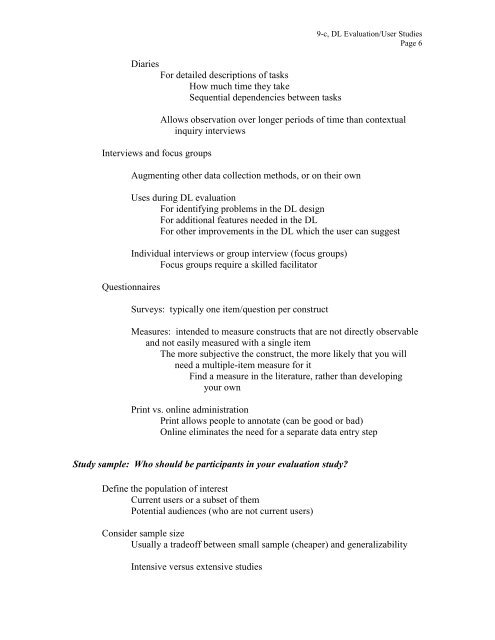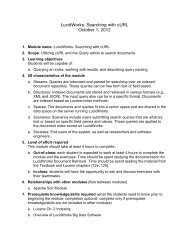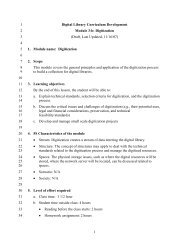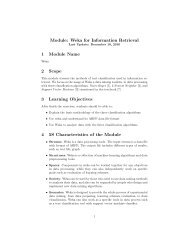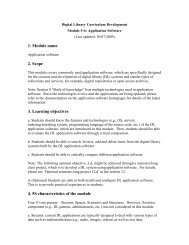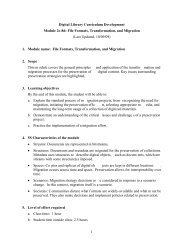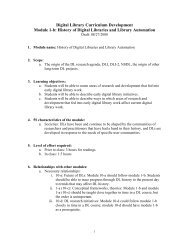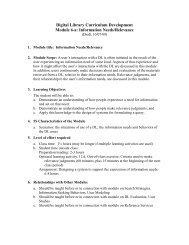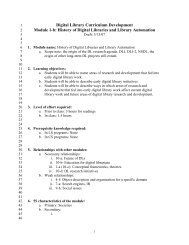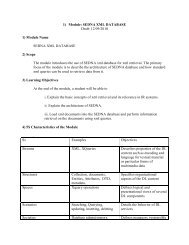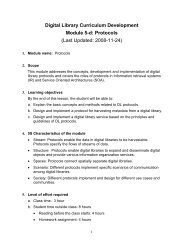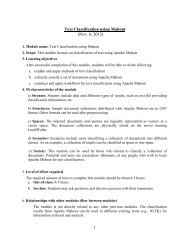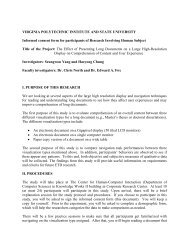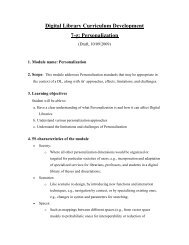9-c - Digital Library Curriculum Project
9-c - Digital Library Curriculum Project
9-c - Digital Library Curriculum Project
You also want an ePaper? Increase the reach of your titles
YUMPU automatically turns print PDFs into web optimized ePapers that Google loves.
Diaries<br />
For detailed descriptions of tasks<br />
How much time they take<br />
Sequential dependencies between tasks<br />
Interviews and focus groups<br />
Questionnaires<br />
9-c, DL Evaluation/User Studies<br />
Page 6<br />
Allows observation over longer periods of time than contextual<br />
inquiry interviews<br />
Augmenting other data collection methods, or on their own<br />
Uses during DL evaluation<br />
For identifying problems in the DL design<br />
For additional features needed in the DL<br />
For other improvements in the DL which the user can suggest<br />
Individual interviews or group interview (focus groups)<br />
Focus groups require a skilled facilitator<br />
Surveys: typically one item/question per construct<br />
Measures: intended to measure constructs that are not directly observable<br />
and not easily measured with a single item<br />
The more subjective the construct, the more likely that you will<br />
need a multiple-item measure for it<br />
Find a measure in the literature, rather than developing<br />
your own<br />
Print vs. online administration<br />
Print allows people to annotate (can be good or bad)<br />
Online eliminates the need for a separate data entry step<br />
Study sample: Who should be participants in your evaluation study?<br />
Define the population of interest<br />
Current users or a subset of them<br />
Potential audiences (who are not current users)<br />
Consider sample size<br />
Usually a tradeoff between small sample (cheaper) and generalizability<br />
Intensive versus extensive studies


